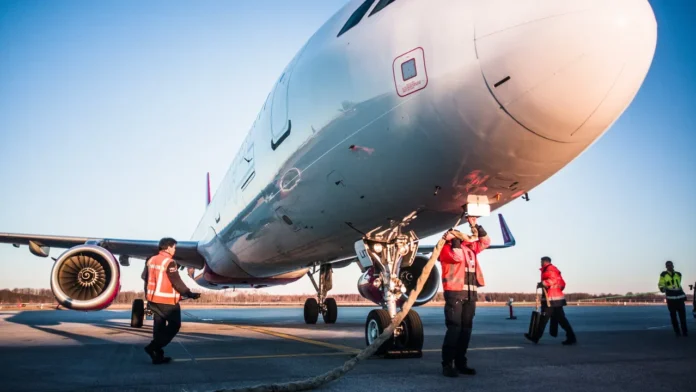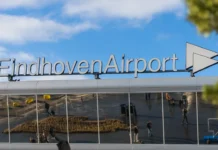Eindhoven Airport is conducting research into the extent to which airport staff are exposed to ultrafine particles. In the meantime, labour union FNV wants the airport to take measures against staff exposure to other harmful substances.
The airport does this after research agency TNO previously conducted research into the concentration of ultrafine particles. Following that study, TNO recommended conducting a follow-up study into the extent to which employees are exposed to ultrafine particles.
Eindhoven Airport announced this after it became known this week that the Labour Inspectorate concluded that employees at Schiphol are exposed to carcinogenic substances contained in aircraft engine emissions. Eindhoven Airport expects the results of the research in the spring.
‘It’s on the agenda’
“This problem is on our agenda”, says an airport spokesperson. “That is why we want to electrify as many vehicles and equipment as possible on the ground and we also want only the cleanest aircraft to be able to fly through our airport by 2030. We have made agreements with the airlines to run the auxiliary engines as little as possible”.
Warming up
“But it is not the case that aircraft can only switch on their engines when they are on the landing or departure runway. Airplane engines must be left running for a certain amount of time to warm up, otherwise flying is not safe. The airlines themselves give the pilots instructions for this”.
Measures
The FNV, through union leader Jaap de Bie, has announced that it expects the airports, including Eindhoven Airport, to take measures in response to the Labour Inspectorate’s ruling. “The problem is not only particulate matter but also the burned and unburned particles and gases that the aircraft emit. These are carcinogenic, the Labour Inspectorate has concluded. Particulate matter is added on top of that”.
And that is why measures are necessary,” says De Bie. “It is easy for planes to be towed further apart so that employees have more space to avoid standing in those toxic fumes. That may cost money and time, but so be it. It concerns the health of thousands of employees throughout the Netherlands”.
Source: Studio040
Translated by: Seetha











